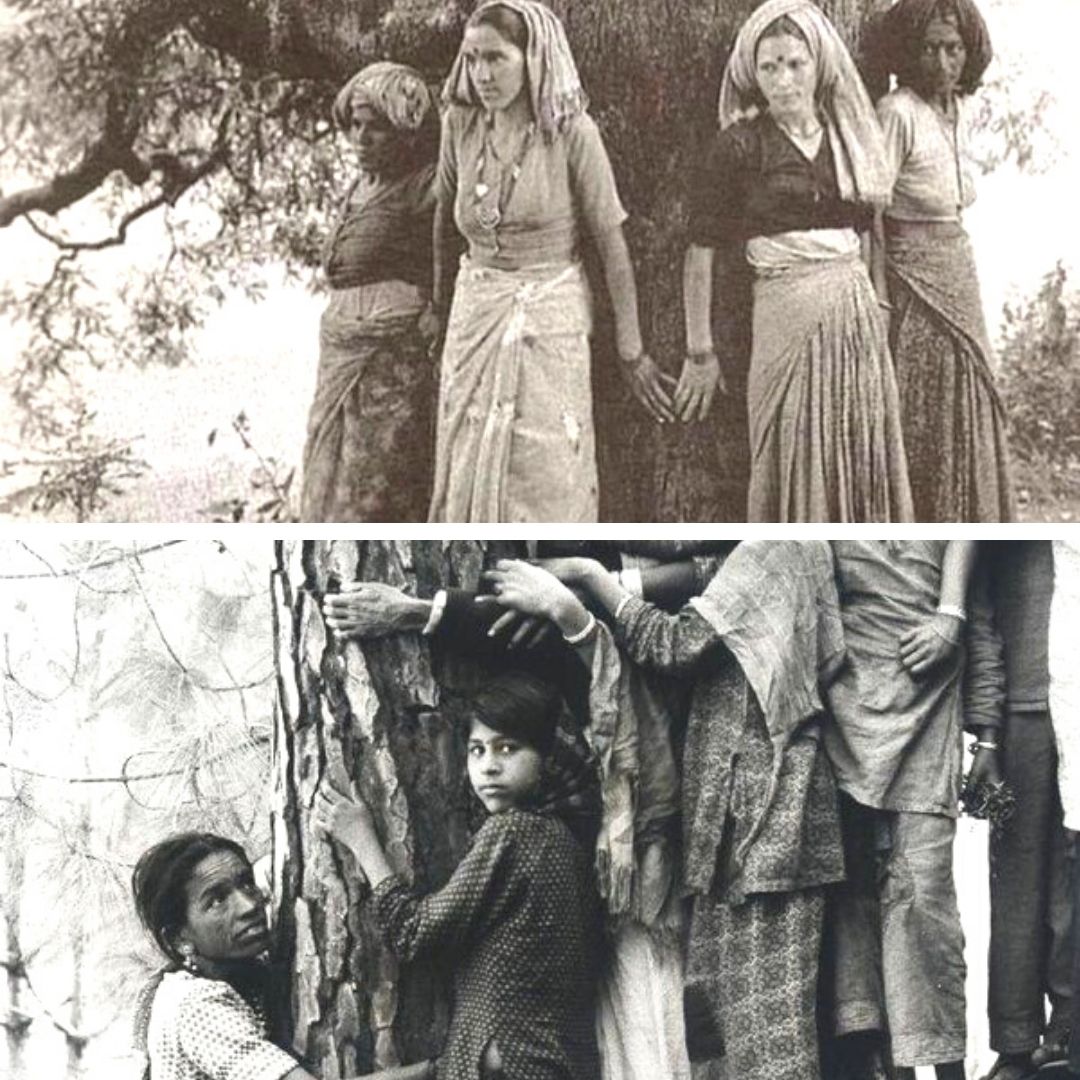
Image Credits: Twitter/Kulbeli.com, Twitter/ Freyr
How 'Chipko Movement' Became India's Clarion Call For Forest Conservation?
Writer: Akanksha Saxena
I am a budding journalist who loves to write stories that have the ability to connect with people.
India, 21 March 2022 10:17 AM GMT
Editor : Ankita Singh |
A literature lover who likes delving deeper into a wide range of societal issues and expresses her opinions about the same. Keeps looking for best-read recommendations while enjoying her coffee and tea.
Creatives : Akanksha Saxena
I am a budding journalist who loves to write stories that have the ability to connect with people.
The emergence of the eco-feminist movement in the 1970s by 'hugging' the trees gave impetus to the larger cause of conservation in India even today. The women involved are remembered for their eventual sacrifice in a bid to protect their land.
Every year, March 21 is celebrated as International Day Of Forests. Established by the United Nations in 2021, the day commemorates the forest's role in maintaining the ecological balance and playing a sustainable part. They are the ultimate source for our daily lives as they fulfil basic needs such as food, water, shelter and the like.
As the years go by, the human race is cruel to the forests, and climate change is the direct consequence of wreaking havoc on the greenery around us. Therefore, the younger generation has started to rally people globally to fight against environmental degradation. Recent times has seen a rise in eco-friendly activities that promote conservation of every kind.
However, not many are familiar with a movement that blew the bugle for forest conservation many years ago in India. A group of women living in the Northern and hilly parts of India did a simple act of 'hugging' the tree that gave rise to what is known as the 'Chipko Movement.' The word 'Chipko' is Hindi, meaning 'to hug', and it is synonymous with them sacrificing their lives to protect their land from the authorities who wanted 'development' by cutting the trees.
Vowing To Protect The Land
The Chipko Movement has its roots in the India-China border conflict in 1963. According to Britannica, Uttar Pradesh flourished due to an abundance of forests and roads that improved connectivity between the remote villages. The developmental endeavours attracted many foreign-run companies who wanted to take advantage of their nature. The logging establishments, in particular, made use of the forests by cutting the trees for their benefit.
As a result, the communities living in the area were deprived of their necessities. The disrupted activities posed significant hurdles from food to fuel and soil stabilization. The tree felling process caused flooding in several areas that killed many people. To oppose this, a Gandhian social activist named Chandi Prasad Bhatt led a movement where the dwellers hugged the trees and prevented them from getting cut. The protest went on for several days, after which the state government cancelled a sporting goods company's logging permit.
Over the years, the movement continued to gain momentum. Slowly and steadily, it emerged as an eco-feminist movement, with women at its forefront. Even today, they are remembered for their sacrifice. As reported by Down To Earth, several international ecologists saw it as a 'cultural response of the people's love for the environment.'
Speaking to the news publication, Mahendra Singh Kanwar, a student during Chipko Movement, said, "The movement dismissed the notion that the poor destroy the environment and do not want to protect it. The Chipko message captured the imagination of activists across the world, and it had a very humane appeal. Cut me down before you cut down the tree. It is far more important than my life; it is the basis of my survival."
Also Read: The Man Who Led People 'Hug' Trees' In 1970's Dies Of COVID-19: Know About Him
 All section
All section














